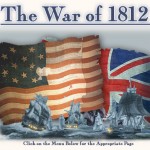Much is made about narrative as a way of reading Scripture, as a method for theological reflection, and as a means for ethical discernment and decision. The role of narrative in Christian faith and practice has been helpful and necessary in my view. Yet it is not without difficulties. Our postmodern milieu has raised our awareness of the ways in which an insistence on a single narrative can be dangerous and oppressive for those who have a different take on how our narrative has played out in their lives (see the presentation by author Chimamande Adichie, “The Danger of a Single Story,” www.youtube.com/watch?v=D9Ihs241zeg ).What comes to my mind immediately is the insistence on a monolithic narrative that purports the United States to be a Christian nation. How might indigenous persons, slaves, and religious others interpret and experience this narrative? Does this even matter to us?
I thought about narrative again after a recent trip to Canada. I was surprised to see commemorative flags of the War of 1812 line the streets of the towns and villages along the St. Lawrence River which we visited. It is the 200th anniversary of the war recognized by our northern neighbors as significant for the eventual sovereignty of Canada when threatened by an invasion from  their southern neighbors. Narrators in the north recalling the event made note of the following: the war was declared by Madison based on speculative intelligence about Britain’s military capabilities and motivations while the true motives of the American invasion was expansionism and imperialism. British troops prevailed in protecting their imperial borders with the support of native Americans, most notably the skill of Tecumseh, a story we don’t like to tell. On this southern side of the border, it is the victories of the Revolutionary War which are celebrated while the War of 1812 becomes buried because of the challenge it may present to a single story. Perhaps it is too difficult to hold conflicting narratives in tension.
their southern neighbors. Narrators in the north recalling the event made note of the following: the war was declared by Madison based on speculative intelligence about Britain’s military capabilities and motivations while the true motives of the American invasion was expansionism and imperialism. British troops prevailed in protecting their imperial borders with the support of native Americans, most notably the skill of Tecumseh, a story we don’t like to tell. On this southern side of the border, it is the victories of the Revolutionary War which are celebrated while the War of 1812 becomes buried because of the challenge it may present to a single story. Perhaps it is too difficult to hold conflicting narratives in tension.
So, while I think reading Scripture as a narrative is important (see the helpful book by NT Wright, Scripture and the Authority of God: How to Read the Bible Today), I am cognizant that within Scripture’s narrative are also multiple narratives. Case in point: I have been reading through the Old Testament using a narrative perspective which has been quite rich. I just started Joshua and, already, I am confronted with multiple narratives in just one book. The people of God are about to “invade” Canaan. What about the residents of the land? What would their experiences be? Do their experiences even matter? These stories, sometimes hidden and implied, are also in Scripture which ought to give me pause as to their importance.
Joshua in 3-D: A Commentary on Biblical Conquest and Manifest Destiny (Cascade, 2011) by my colleague and friend at Ashland Seminary, Dr. Dan Hawk, presses us to see the dangers of ignoring the multiple stories in Scripture when we insist on a single narrative. These multiple narratives may be ways of piquing our interests in the stories and experiences of others. They are part of the of the story that God deemed fit to tell, so they matter. Can we hear them? Do we want to hear them? Why do we insist on a single story line which makes all of our stories flat, plotless, and our characters predictable and boring?











